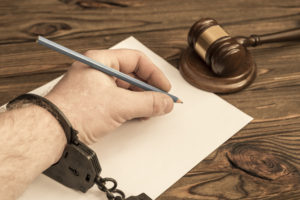
The industry has seen its fair share of criticism lately. In fact, the bail system is seeing reform all over the country. We’ve written about some of these reforms in past blogs. At the same time, many people misunderstand the bail system and why it’s there and who it actually serves to protect. The fact is that many times people find themselves in trouble with the law and turn around to find their lives suddenly coming to a halt. The bail system is there to protect people from finding their lives devastated while waiting for their charges or cases to be resolved. It also acts as a kind of insurance for people to go to court.
Let’s Cover Some Basic Ground
When a person gets arrested and/or charged for a crime or possible crime, they might be taken to jail. Before they can be committed or acquitted, however, they must go through the court system and their case must be heard in a court of law. This takes time. So in order to ensure that everybody gets the right guaranteed by the sixth amendment, they are guaranteed trial. So a person can either stay in jail until their trial comes up, or they can be released on the condition that they will return to court for the assigned court date. Remaining in jail for a couple of months is not only a nuisance to most people, but it is also a completely life-altering event. That is because it means a person will likely lose their job, might be unable to pay bills, take care of family, look out for their kids, loved ones, pets, etc. For the average person, this is simply unthinkable to simply be ripped out of your everyday life and expect things not to fall apart. The issue at hand is that if the justice system deems the person innocent, they have already lost months of their lives, their livelihood, and many times their reputation and loved ones. As a bail bondsman, we help people that cannot afford bail on their own.
Helping The Defendant and the Court System
Our job is somewhere in the middle. If people were to sum up our jobs, we are a kind of insurance. We are a loan. And we make sure that people show up to court. When there is a bail that is of high amounts, most people cannot afford that. So we front the money for the agreement that they will show up to court when need be. If they do not, we help find the defendant and ensure that they show up to court.
The court itself makes its assessments about who is a flight risk or not. That is really up to the judge. We are not connected to the courts in any way, per se, but we are a third party that helps defendants keep their lives together as they await their court date and also puts pressure on them to return to court when they need to show up.
The Judge’s Considerations for Bail
The bail bondsman does not set the bail amount. It is the judge that sets this amount and decides what the defendant needs to pay depending on certain factors. These include:
- Whether the defendant is a flight risk
- Whether they are a possible danger to the public.
- The judge will consider the evidence and charges.
Interesting Facts about Bail That You May Not Know
Even though bail bondsmen are often portrayed as the bad guy, we are really only a kind of middleman that takes responsibility for a defendant to show up to their court hearings. In this sense, we will help the justice system move along. Here are a couple of interesting facts to note about what we do here:
- The state regulates Bond fees. The fees that come with the bonds are regulated and imposed by the state.
- A bail bond is a type of loan. We provide a type of loan to people that cannot afford the bail amount that the judge requires. Otherwise, defendants may have to remain in prison until their court hearing.
- Showing up is not always the end. Some defendants may have more special restrictions set for their bail. These may include signing up for a drug rehab program, remaining within state lines, etc. This all in addition to showing up for court.
- Bail bonds often accept collateral. And that collateral can come in different shapes and sizes. For people that can’t afford to take out a bail bond, there are options available in terms of collateral. This might include a vehicle, jewelry, etc. This helps secure your loan and allows you to pay your bail in order to get out of jail.
Go to a Trusted Bail Bondsman in El Paso
Freedom Bail Bonds has been providing people with bail for many years now. If you’re loved one has been arrested and is facing a bail amount, give us a call today and see how we can help you. Don’t let your life come apart before you see your day in court.
